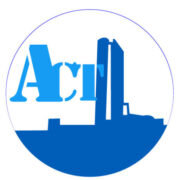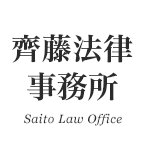Best Construction Accident Lawyers in Tokyo
Share your needs with us, get contacted by law firms.
Free. Takes 2 min.
List of the best lawyers in Tokyo, Japan
About Construction Accident Law in Tokyo, Japan
In Tokyo, Japan, construction accident law falls under the broader umbrella of labor and employment law, with specific regulations aimed at ensuring the safety and health of construction workers. The primary legal framework includes the Industrial Safety and Health Act, alongside other relevant laws and standards set by the Ministry of Health, Labour and Welfare (MHLW). These regulations mandate strict safety protocols, training, and the use of protective gear on construction sites. When accidents occur, they are investigated, and if the employer is found in violation of safety regulations, they can be held liable for injuries suffered by workers. Victims may be entitled to compensation through workers' compensation insurance or by filing personal injury claims against responsible parties.
Why You May Need a Lawyer
Individuals often require legal assistance in cases of construction accidents in Tokyo for several reasons. If you are injured on a construction site, navigating the complex legal and regulatory landscape to claim compensation can be challenging. A lawyer can help in situations of serious injury where the compensation offered does not cover all medical expenses or does not account for lost wages and future earnings. Further, if the accident was due to negligence or a violation of safety regulations, a lawyer could help file a lawsuit against the responsible parties. Legal help is also essential when dealing with construction accidents involving third parties or defective equipment, where liability may be more complex.
Local Laws Overview
The Industrial Safety and Health Act is the cornerstone of construction accident law in Tokyo, emphasizing the prevention of occupational accidents and the promotion of workers' health. This Act, along with the Ordinance on Industrial Safety and Health, sets forth the requirements for safety measures, such as the use of protective gear and the implementation of safety management systems. Another key piece of legislation is the Workers' Accident Compensation Insurance Law, which provides for compensation and benefits to workers injured on the job, including medical expenses, lost wages, and disability benefits. Employers are required to comply with these laws, and failure to do so can result in significant penalties, including fines and imprisonment.
Frequently Asked Questions
What should I do immediately after a construction accident in Tokyo?
Seek medical attention, report the accident to your employer, and document everything related to the incident and your injuries. You should also consider consulting with a lawyer specialized in construction accidents to discuss your case.
Who is liable in a construction accident?
Liability can fall on various parties, including employers, contractors, equipment manufacturers, or third parties, depending on the circumstances of the accident.
Can I sue my employer for a construction accident?
Under Japanese law, employees are typically compensated through workers' compensation insurance. However, if the accident resulted from the employer's gross negligence or violation of safety regulations, further legal action might be possible.
What kind of compensation can I expect?
Compensation may cover medical expenses, lost wages, disability benefits, and pain and suffering, depending on the severity of the incident and injuries sustained.
How long do I have to file a claim?
There are specific time limits for filing claims set by Japanese law. It is crucial to consult with a lawyer promptly to ensure your claim is filed within the statutory deadlines.
Do I need a lawyer to claim compensation?
While not strictly necessary, navigating the complexities of construction accident claims is challenging without legal expertise. A lawyer can help maximize the compensation received.
What should I look for in a lawyer?
Find a lawyer experienced in construction accident law and familiar with the latest regulations and cases in Tokyo, Japan.
Can I claim if I’m a part-time or temporary worker?
Yes, part-time and temporary workers are also entitled to compensation under Japanese law, provided they are officially recognized as employees of the company.
What happens if the accident was partially my fault?
The concept of contributory negligence may apply, potentially reducing the amount of compensation. However, you might still be eligible for certain benefits under workers' compensation insurance.
Are there any government programs to assist construction accident victims?
Yes, the Workers’ Accident Compensation Insurance and other MHLW programs provide support and compensation to injured workers, including rehabilitation services.
Additional Resources
For individuals seeking legal advice in Tokyo regarding construction accidents, the Ministry of Health, Labour and Welfare (MHLW) offers extensive resources and guidelines on workers' rights and safety regulations. The Japan Federation of Bar Associations provides a directory of lawyers and law firms specialized in labor and employment law, including those with expertise in construction accidents. Additionally, local legal aid services in Tokyo can offer assistance to those who may not have the means to hire a private lawyer.
Next Steps
If you need legal assistance following a construction accident in Tokyo, the first step is to consult with a lawyer who specializes in this area of law. Gather all relevant documents, such as medical records and any correspondence with your employer or their insurance company. It’s important to act promptly due to the strict deadlines for filing claims. Your lawyer will guide you through the process of securing the compensation you are entitled to, ensuring your rights are protected every step of the way.
Lawzana helps you find the best lawyers and law firms in Tokyo through a curated and pre-screened list of qualified legal professionals. Our platform offers rankings and detailed profiles of attorneys and law firms, allowing you to compare based on practice areas, including Construction Accident, experience, and client feedback.
Each profile includes a description of the firm's areas of practice, client reviews, team members and partners, year of establishment, spoken languages, office locations, contact information, social media presence, and any published articles or resources. Most firms on our platform speak English and are experienced in both local and international legal matters.
Get a quote from top-rated law firms in Tokyo, Japan — quickly, securely, and without unnecessary hassle.
Disclaimer:
The information provided on this page is for general informational purposes only and does not constitute legal advice. While we strive to ensure the accuracy and relevance of the content, legal information may change over time, and interpretations of the law can vary. You should always consult with a qualified legal professional for advice specific to your situation.
We disclaim all liability for actions taken or not taken based on the content of this page. If you believe any information is incorrect or outdated, please contact us, and we will review and update it where appropriate.












